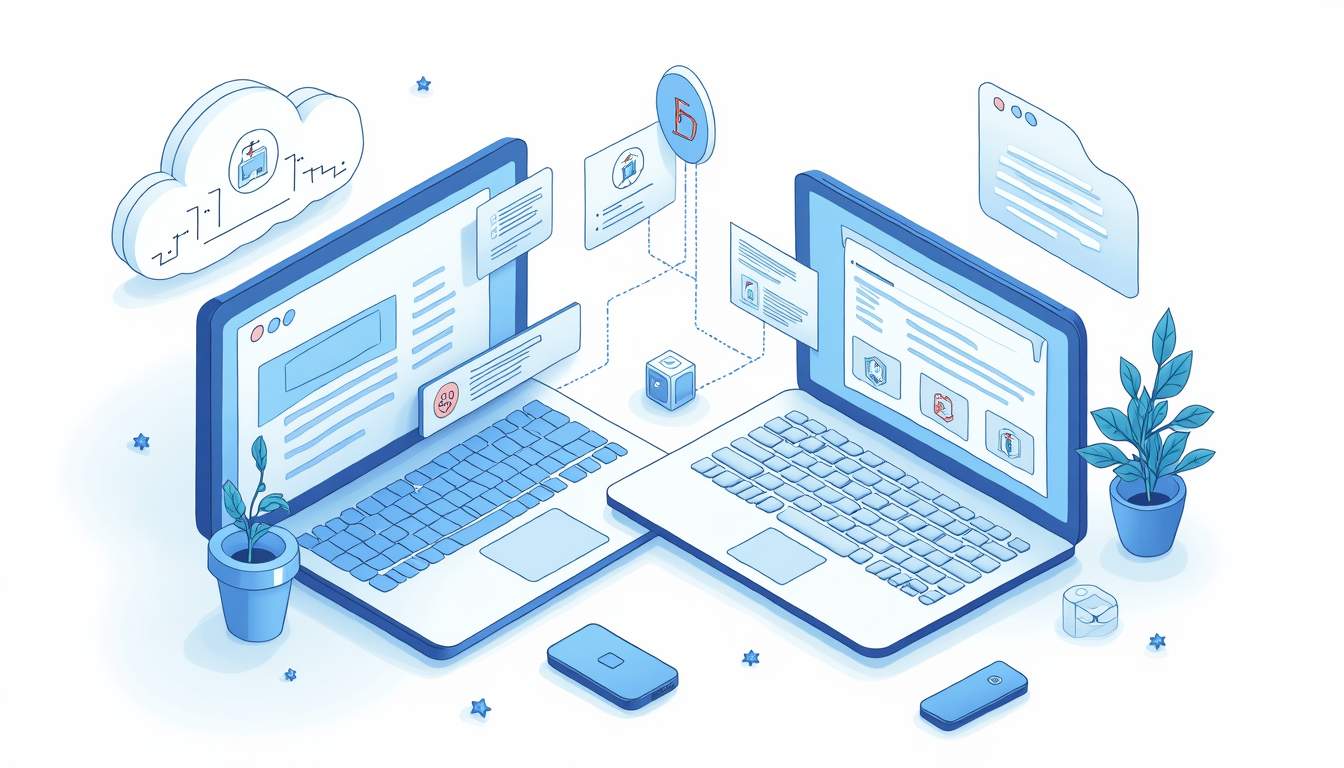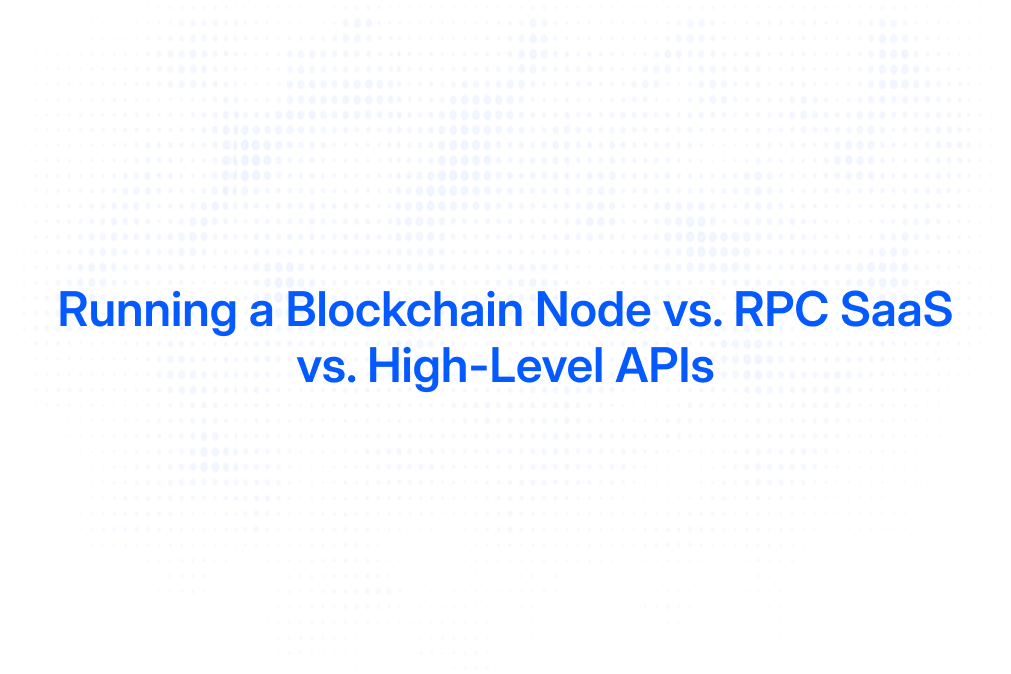Uniblock vs QuickNode: Which RPC Solution is Right for You?
Choosing the right RPC (Remote Procedure Call) provider is a critical decision for developers building blockchain applications. The reliability, speed, cost, and scalability of your Web3 infrastructure often hinge on this choice. Two prominent players in the RPC space are Uniblock and QuickNode. Both offer robust solutions, but they differ in features, pricing models, and technical approaches. This article dives deep into the comparison between Uniblock and QuickNode to help you determine which RPC solution best fits your blockchain project’s needs.
Understanding RPC Providers and Their Role in Web3
Before comparing Uniblock and QuickNode, it’s essential to understand what RPC providers do and why they matter. RPC providers serve as the critical communication layer between decentralized applications (dApps) and blockchain networks. They enable developers to send transactions, query blockchain data, and interact with smart contracts without running their own nodes.
However, not all RPC providers are created equal. Factors such as uptime reliability, latency, failover mechanisms, and cost efficiency play a significant role in the overall user experience and operational success of blockchain apps. This is where advanced features like RPC auto-routing, multi-provider redundancy, and multi-cloud infrastructure come into play.
In the rapidly evolving landscape of Web3, the demand for seamless interaction with blockchain networks is paramount. Developers are increasingly seeking solutions that not only provide robust performance but also enhance the scalability of their applications. For instance, RPC providers that offer load balancing can distribute requests across multiple nodes, ensuring that no single point of failure can disrupt service. This is particularly important during peak usage times when transaction volumes can surge, leading to potential bottlenecks and delays.
Moreover, the integration of advanced analytics tools within RPC services allows developers to monitor the performance of their applications in real-time. By analyzing metrics such as response times and error rates, developers can make informed decisions to optimize their dApps further. This data-driven approach not only improves user satisfaction but also fosters a more resilient ecosystem where applications can adapt to changing demands and maintain high availability. As the Web3 space continues to mature, the role of RPC providers will only become more critical in supporting the next generation of decentralized solutions.
Core Features: Uniblock vs QuickNode
Uniblock: Multi-Provider RPC Aggregation and Auto-Routing
Uniblock distinguishes itself with its innovative approach to RPC routing by acting as an aggregator that automatically routes requests across multiple RPC providers. This multi-provider strategy enhances reliability by reducing the risk of downtime associated with any single provider. If one endpoint experiences latency or outages, Uniblock seamlessly reroutes traffic to healthier nodes, ensuring uninterrupted service.
Additionally, Uniblock offers advanced load balancing and failover capabilities, which are critical for high-availability Web3 applications. Its infrastructure supports multi-cloud and multi-region deployments, leveraging Google’s Multi-Cloud Proxy (MCP) technology to optimize latency and redundancy. This makes Uniblock particularly attractive for projects that demand both speed and resilience.
QuickNode: Fast, Developer-Friendly RPC Access
QuickNode is well-known for its user-friendly interface and fast RPC endpoints across multiple blockchains. It provides developers with easy onboarding, extensive documentation, and a variety of tools that simplify blockchain integration. QuickNode focuses on delivering low-latency access to blockchain networks with a straightforward pricing model and scalable infrastructure.
While QuickNode offers high-performance RPC endpoints, it primarily operates as a single-provider solution. This means that although QuickNode maintains strong uptime and performance, it may not inherently provide the same level of failover redundancy or multi-provider routing that Uniblock does. However, QuickNode’s global data center presence helps reduce latency and improve speed for end-users worldwide.
Reliability and Uptime: Why Multi-Provider Routing Matters
One of the most significant advantages of Uniblock’s multi-provider RPC routing is its ability to mitigate the risks associated with RPC downtime. In blockchain applications, even a few seconds of RPC outage can lead to failed transactions, poor user experience, and lost revenue. Uniblock’s architecture reduces this risk by distributing API calls across multiple providers and automatically switching to backup endpoints when issues arise.
QuickNode, while reliable, relies on its own infrastructure. This single-provider model can be vulnerable if there are network disruptions or provider-specific issues. For many developers, especially those building mission-critical or high-traffic dApps, the redundancy offered by Uniblock’s multi-provider approach can be a decisive factor.
Performance and Latency: Speed is Key
Latency is a crucial metric for blockchain apps, especially those involving real-time user interactions or high-frequency trading. QuickNode’s global network of data centers helps minimize latency by routing requests to the nearest server locations. This ensures that users experience fast response times regardless of their geographic location.
Uniblock also emphasizes low latency through its multi-region RPC routing, leveraging Google MCP technology to optimize request paths. By intelligently selecting the fastest and most reliable RPC endpoint at any given moment, Uniblock can often outperform single-provider solutions in speed and consistency.
Cost Considerations: Optimizing Your RPC Spend
Cost is a major concern for startups and developers scaling their blockchain applications. QuickNode offers transparent pricing tiers based on usage, making it easy to predict expenses. However, as your API call volume grows, costs can escalate quickly, especially if you require premium features or higher throughput.
Uniblock’s auto-routing capabilities can lead to significant cost savings by optimizing which RPC providers handle requests based on price and performance. This dynamic routing reduces reliance on expensive single providers and helps control overall RPC infrastructure costs. Reports indicate that startups have reduced RPC expenses by up to 40% using multi-provider routing solutions like Uniblock.
Developer Experience and Ecosystem Support
QuickNode excels in providing a smooth developer experience with comprehensive SDKs, easy-to-use dashboards, and extensive blockchain support, including Ethereum, Solana, Polygon, and more. Its focus on developer tools makes it an excellent choice for teams looking for quick integration and reliable support.
Uniblock, while slightly more complex due to its multi-provider architecture, offers detailed documentation and tutorials on setting up auto-routing and integrating multiple RPC endpoints into a single API. This makes it suitable for developers who want greater control over their infrastructure and are willing to invest time in optimizing their RPC setup.
Use Cases: Which Solution Fits Your Project?
When to Choose Uniblock
- High Availability Requirements: If your dApp demands near-zero downtime and can’t afford RPC outages, Uniblock’s multi-provider failover is invaluable.
- Cost Optimization: Projects with large volumes of API calls seeking to reduce RPC expenses through dynamic routing.
- Multi-Cloud and Multi-Region Needs: Applications requiring global reach with optimized latency and redundancy.
- Advanced Infrastructure Control: Teams comfortable with configuring multi-provider setups to maximize performance and reliability.
When to Choose QuickNode
- Rapid Development: Developers needing quick, easy access to RPC endpoints with minimal setup.
- Smaller Scale Projects: Applications with moderate API call volumes where simplicity and speed are priorities.
- Strong Developer Support: Teams valuing comprehensive documentation, SDKs, and a streamlined onboarding process.
- Multi-Blockchain Access: Projects requiring support across many blockchains with consistent performance.
Conclusion: Making the Right Choice for Your Blockchain Infrastructure
Both Uniblock and QuickNode offer compelling RPC solutions tailored to different developer needs. QuickNode’s ease of use, speed, and broad blockchain support make it an excellent choice for many projects, especially those prioritizing simplicity and rapid deployment.
On the other hand, Uniblock’s multi-provider RPC routing, failover mechanisms, and cost optimization features provide a robust infrastructure foundation for mission-critical applications that demand high availability and scalability. Its use of Google MCP and multi-cloud strategies positions it as a forward-looking solution for the evolving Web3 landscape.
Ultimately, the decision comes down to your project’s specific requirements: whether you prioritize simplicity and speed or resilience and cost-efficiency. Evaluating your application’s tolerance for downtime, expected API call volume, and budget constraints will guide you toward the RPC provider that best supports your blockchain ambitions.
Ready to elevate your blockchain project with unparalleled uptime, reduced latency, and cost-effective infrastructure? Start building with Uniblock today and join over 2,000 developers who are harnessing the power of our Web3 infrastructure orchestration platform. Experience the simplicity of connecting to blockchain data through a single API endpoint that intelligently auto-routes traffic across 100+ chains. Say goodbye to vendor lock-in and scale your dApps, tooling, or analytics with confidence. Uniblock is here to streamline your decentralized infrastructure management, so you can focus on innovation and growth.
.svg)


.png)



